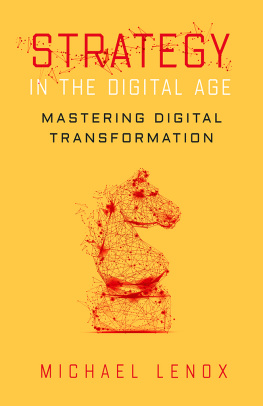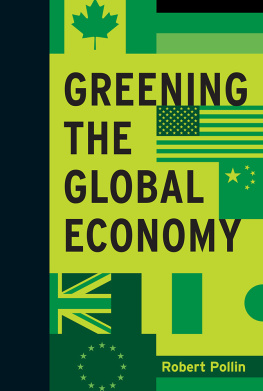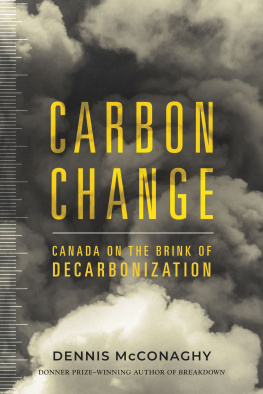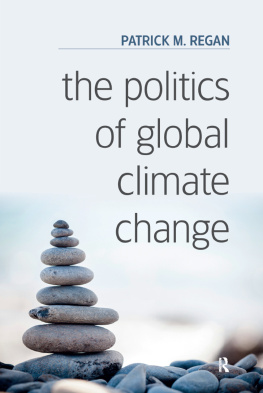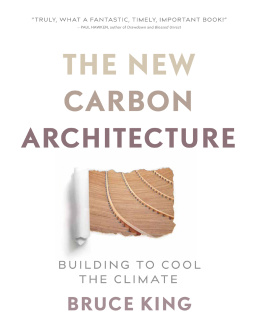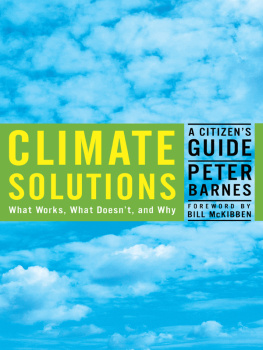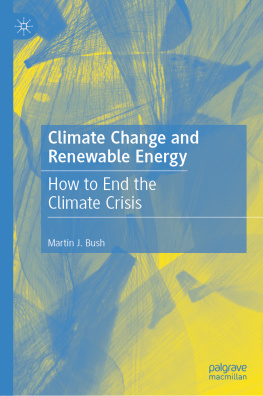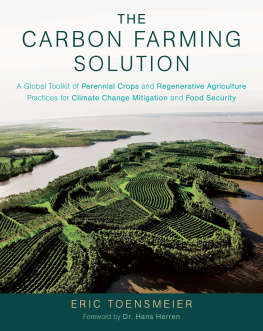THE DECARBONIZATION IMPERATIVE
TRANSFORMING THE GLOBAL ECONOMY BY 2050
Michael Lenox and Rebecca Duff
STANFORD BUSINESS BOOKS
An Imprint of Stanford University Press
Stanford, California
STANFORD UNIVERSITY PRESS
Stanford, California
2021 by the Board of Trustees of the Leland Stanford Junior University.
All rights reserved.
No part of this book may be reproduced or transmitted in any form or by any means, electronic or mechanical, including photocopying and recording, or in any information storage or retrieval system without the prior written permission of Stanford University Press.
Special discounts for bulk quantities of Stanford Business Books are available to corporations, professional associations, and other organizations. For details and discount information, contact the special sales department of Stanford University Press. Tel: (650) 725-0820, Fax: (650) 725-3457
Printed in the United States of America on acid-free, archival-quality paper
Library of Congress Cataloging-in-Publication Data
Names: Lenox, Michael, author. | Duff, Rebecca (Senior research associate), author.
Title: The decarbonization imperative : transforming the global economy by 2050 / Michael Lenox and Rebecca Duff.
Description: Stanford, California : Stanford Business Books, an imprint of Stanford University Press, 2021. | Includes bibliographical references and index.
Identifiers: LCCN 2021007428 (print) | LCCN 2021007429 (ebook) | ISBN 9781503614789 (cloth) | ISBN 9781503629622 (epub)
Subjects: LCSH: Greenhouse gas mitigationEconomic aspects. | Carbon dioxide mitigationEconomic aspects. | Climate change mitigationEconomic aspects. | Green technologyEconomic aspects. | Technological innovationsEnvironmental aspects.
Classification: LCC HC79.A4 L46 2021 (print) | LCC HC79.A4 (ebook) | DDC 363.738/746dc23
LC record available at https://lccn.loc.gov/2021007428
LC ebook record available at https://lccn.loc.gov/2021007429
Cover design: Christian Storm
Text design: Kevin Barrett Kane
Typeset at Stanford University Press in 10/14 Minion Pro
In honor of my mother, Lynn Lenox, who fostered my interest in trying to solve complex puzzles
In honor of my children, Charlie and Grace Ann Duff, who inspire me to work toward a better, more sustainable future
CONTENTS
FIGURES
PREFACE
Climate change is the challenge of our lifetimes. If we fail to act, and act soon, we risk leaving our children a world in which humanitys ability to flourish will be severely tested. The simple premise of this book is to take a detailed look at what needs to happen for us to mitigate the worst impacts of climate change by radically reducing our carbon footprint. Its central assumption is that addressing our global warming challenge will require substantial innovation across a wide number of industrial sectors that promises to disrupt existing technologies and business models and usher in cleaner industries that do not emit greenhouse gases.
This book serves as a complement to Lenoxs 2018 book Can Business Save the Earth? Innovating Our Way to Sustainability, also from Stanford University Press. In that book, Lenox and his coauthor, Ronnie Chatterji, discuss the importance of the innovation system in generating disruptive sustainable technologies. Structured around the core economic players in the innovation processinnovators themselves, managers, financiers, and customersthe book highlights the broader institutional envelope that surrounds the innovation system and the role played by private intermediaries and public interveners in driving the rate and direction of innovative activity.
In this book, we take a deep dive into the challenge of climate change and the need to effectively reduce net greenhouse gas emissions to zero by 2050. Using a sector-based approach, we analyze emerging clean technologies in five large sectors: energy, transportation, industrials, buildings, and agriculture. We assess the likelihood of technology disruptions leading to a decarbonized future in each sector and, more important, provide suggestions on various public and private levers that could be pulled to catalyze innovation and disruption to meet our 2050 goal. We end by providing a practical and comprehensive technology policy to get the world to net-zero emissions. We note that there are numerous reports and books available that explore each of these sectors more deeply. Our intent is to provide a broad view of technology disruption across all of them and help readers to better understand the scope and scale of collective work that will be needed to decarbonize the global economy by 2050. For those interested in detailed simulations of the path to 2050, one of our favorites is the En-ROADS Climate Solutions Simulator. Our goal in this book is not to replicate these detailed simulation models, but rather to leverage our understanding of technology disruptions to gauge the likelihood of shifting markets toward sustainable technologies and to posit levers to encourage such changes. In doing so, we hope to illuminate the mechanisms that help accelerate disruptive change, mechanisms that are often obscured in a complex simulation.
Climate change is a global issue, and carbon emissions know no boundaries. To decarbonize by 2050, actions taken by developing countries to curb their emissions while growing their own economies will be crucial. Throughout each chapter we identify and discuss briefly those countries with the most influence to change the emissions trajectory within that sector over the next thirty years. While the primary focus of this book is on the United States economy, we believe that the technologies explored, and the opportunities and levers needed to accelerate their adoption, are transferable to other country economies if given the right market conditions.
In pursuing this project, we have benefited greatly from conversations and engagements with our academic colleagues, students, business leaders, policy makers, and leaders of nongovernmental organizations. The genesis of this book was a series of research reports that we developed as part of the University of Virginia Batten Institutes Business Innovation and Climate Change Initiative. In addition, under the auspices of the initiative, we hosted two events that brought together leaders from all walks of life to discuss the issues raised in this book: the 2018 Jefferson Innovation Summit to catalyze innovation and entrepreneurship to tackle climate change and the 2020 ClimateCAP MBA Summit on climate, capital, and business. We thank all the participants for their contributions.
In addition, we wish to recognize our various coauthors and collaborators who have shaped our thinking on sustainability over the years: MIT professor emeritus John Ehrenfeld, Ronnie Chatterji at Duke, Andrew King at Boston University, Chuck Eesley at Stanford, Jen Nash at Harvard, and Jeff York at Colorado, among many others. We also wish to recognize the support and influence of the community of scholars that make up the Alliance for Research in Corporate Sustainability. Lenox also benefited from feedback received at academic seminars on this work at MIT, Cornell, and the University of Virginia.
We wish to recognize the support of our colleagues and students at the University of Virginias Darden School of Business. They have greatly influenced our thinking and provided inspiration for our efforts. The Batten Institute at UVA provided financial support for this project for which we are most grateful. More important, the Institute provided significant support in terms of both time and talent as the home to the Business Innovation and Climate Change Initiative. A special thanks goes to Erika Herz from the Batten Institute, who was a passionate advocate for our work and primary contributor to the initiative.


